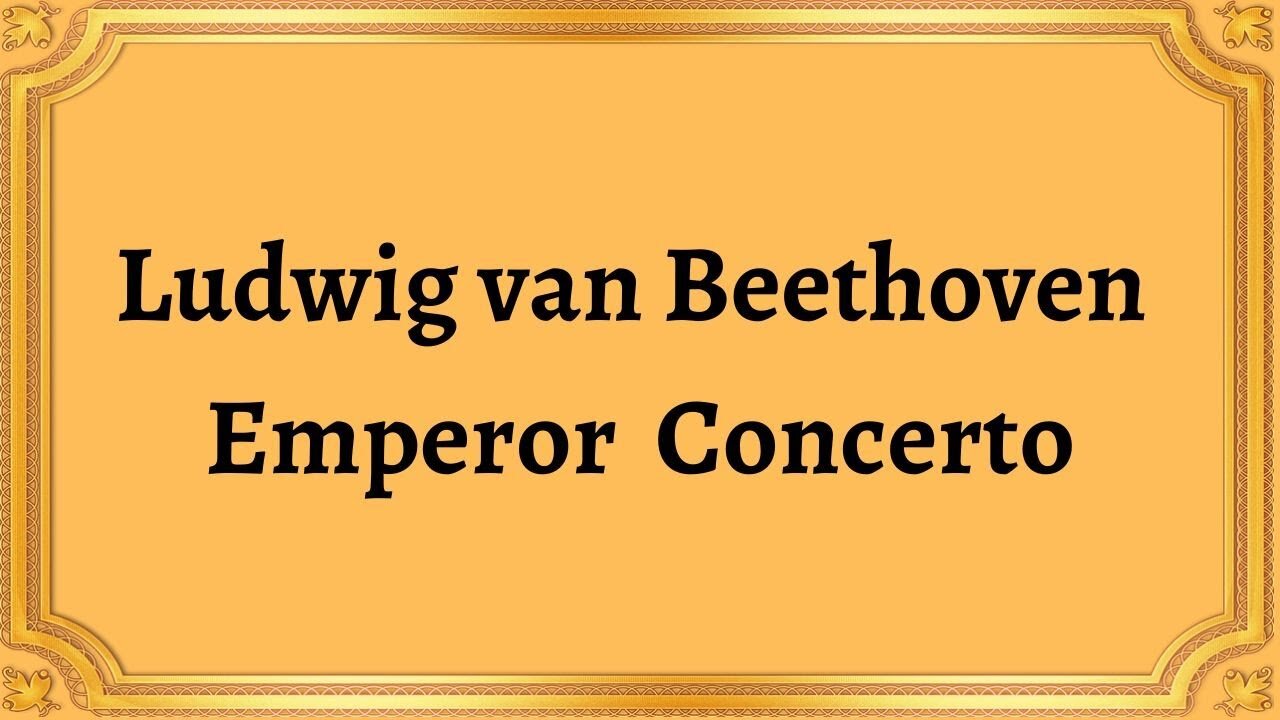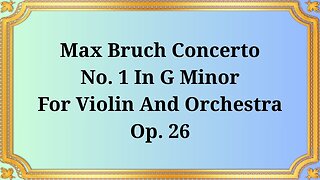Premium Only Content

Ludwig van Beethoven Emperor Concerto
Publication date 1950
FELICITAS KARRER, Pionist
VIENNA TONKUPISTLER SYMPHONY ORCH.
"Ludwig van Beethoven Emperor Concerto" is one of the iconic pieces in the classical music world, often referred to as Beethoven's "Piano Concerto No. 5." Written in 1809, the composition was premiered by Beethoven himself in the same year. The piece is renowned for its technical complexity, powerful music themes, and its timeless quality, and it remains a classic in the music world to this day.
The composition is divided into three movements. The first, marked "Allegro," sets a fast pace with the piano and orchestra playing a duet in a series of melodies that showcase a range of musical textures. The second movement, "Adagio un poco mosso," slows the tempo while featuring a gentle yet vibrant piano melody that captivates the audience. It highlights the beauty of the composition with its elegant harmonies, which demonstrate Beethoven's gift for weaving great emotional depth into his music.
The final movement, "Rondo-Allegro," is a return to the lively pace of the first movement, featuring a series of musical themes and powerfully rhythmic moments. The movement is structured as a rondo, with the piano stating a repeated theme that is followed by various contrasting musical patterns, providing the audience with a sense of vitality that is both joyful and dramatic.
One of the most remarkable aspects of Beethoven's Emperor Concerto is its inspiration from the ideals of the French Revolution, which shines through in the revolutionary spirit and energy of the piece. This influence is particularly evident in the virtuosic solo piano parts, which require exceptional dexterity and technical precision to perform successfully, as well as incorporating the grandeur of the orchestra to create a powerful confluence of sound.
In conclusion, Beethoven's Emperor Concerto is one of the most celebrated pieces in the classical music repertoire, loved for its complicated dynamics and strikingly original themes. Its innovative structure and complex soundscape are a testament to Beethoven's genius and his unique approach to classical music composition. The enduring legacy of this piece is a true tribute to Beethoven's iconic contribution to the classical music world.
You have the opportunity to support the channel https://destream.net/live/RadSiarAl/donate
-
 24:35
24:35
Classical music_Music Inspiration
27 days agoMax Bruch Violin Concerto No. 1 in G minor, Op. 26
891 -
 1:30:44
1:30:44
Roseanne Barr
6 hours agoOn the Wrong Side of the Algorithm | The Roseanne Barr Podcast #114
79.9K38 -
 13:53
13:53
TundraTactical
4 hours ago $0.58 earnedFudd Finder : 11 Questions Second Amendment Questions (And Roasts) to Ask Your Friends
13.5K -
 LIVE
LIVE
Wayne Allyn Root | WAR Zone
6 hours agoWAR Zone LIVE | 5 SEPTEMBER 2025
127 watching -
 1:39:50
1:39:50
The White House
6 hours agoPresident Trump Makes Announcements, Sep. 5, 2025
27.6K25 -

Red Pill News
4 hours agoBombshell Biden Docs Invalidate Autopen Pardons on Red Pill News Live
24.9K19 -
 9:36
9:36
Silver Dragons
3 hours agoGold Price NEW ALL TIME HIGH - $5,000 GOLD NEXT?
12.5K6 -
 LIVE
LIVE
LFA TV
12 hours agoLFA TV ALL DAY STREAM - FRIDAY 9/5/25
815 watching -
 13:43
13:43
The Kevin Trudeau Show Limitless
2 days agoClassified File 3 | Kevin Trudeau EXPOSES Secret Society Brainwave Training
94.3K19 -
 1:11:24
1:11:24
vivafrei
7 hours agoDearborn Heights Police Have Been CONQUERED! Gender Madness on PASSPORTS! Canada Stuff & MORE!
90.7K58